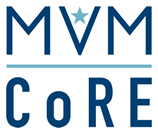Attention A T users. To access the menus on this page please perform the following steps.
1. Please switch auto forms mode to off.
2. Hit enter to expand a main menu option (Health, Benefits, etc).
3. To enter and activate the submenu links, hit the down arrow.
You will now be able to tab or arrow up or down through the submenu options to access/activate the submenu links.
Locator
Contact
Search
Rocky Mountain MIRECC - Adam Hoffberg MHS

Updated: 14 March 2019
Biography
- Adam Hoffberg MHS
 Title: Research Coordinator
Title: Research Coordinator- Contact information:
720-723-6485
adam.hoffberg@va.gov
Recent Publications
- Bahraini N, Simpson GK, Brenner LA, Hoffberg AS, Schneider AL. (2013) Suicidal Ideation and Behaviours after Traumatic Brain Injury: A Systematic Review. Brain Impairment / FirstView Article, pp 1-21.
- Traumatic brain injury (TBI) is prevalent among many populations and existing data suggest that those with TBI are at increased risk for death by suicide. This systematic review serves as an update to a previous review, with the aim of evaluating the current state of evidence regarding prevalence and risk of suicide deaths, post-TBI suicidal ideation and suicide attempts, and treatments to reduce suicide-related outcomes among TBI survivors. Review procedures followed the PRISMA statement guidelines. In all, 1014 abstracts and 83 full-text articles were reviewed to identify 16 studies meeting inclusion criteria. Risk of bias for individual studies ranged from low to high, and very few studies were designed to examine a priori hypotheses related to suicide outcomes of interest. Overall, findings from this systematic review supported an increased risk of suicide among TBI survivors compared to those with no history of TBI. Evidence pertaining to suicidal thoughts and attempts was less clear, mainly due to heterogeneity of methodological quality across studies. One small randomised controlled trial was identified that targeted suicide prevention in TBI survivors. Further research is needed to identify the prevalence of post-TBI ideation and attempts, and to establish evidence-based suicide prevention practices among TBI survivors.
- Keywords: Suicide Prevention, Traumatic Brain Injury (TBI)
- Return to Top
- Brenner LA, Stearns-Yoder KA, Hoffberg AS, Penzenik ME, Starosta AJ, Hernández TD, Hadidi DA, Lowry CA. Growing literature but limited evidence: A systematic review regarding prebiotic and probiotic interventions for those with traumatic brain injury and/or posttraumatic stress disorder. Brain Behav Immun. 2017 Jun 9. pii: S0889-1591(17)30192-7. doi: 10.1016/j.bbi.2017.06.003.
- Traumatic brain injury (TBI) is highly prevalent among a wide range of populations, including civilians, military personnel, and Veterans. TBI sequelae may be further exacerbated by symptoms associated with frequently occurring comorbid psychiatric conditions, including posttraumatic stress disorder (PTSD). This is particularly true among the population of military personnel from recent conflicts in Iraq and Afghanistan, with a history of mild TBI (mTBI) and PTSD. The need for efficacious treatments for TBI and comorbid PTSD is significant, and evidence-based interventions for these frequently co-occurring conditions are limited. Based on findings suggesting that inflammation may be an underlying mechanism of both conditions, anti-inflammatory/immunoregulatory agents, including probiotics, may represent a novel strategy to treat TBI and/or PTSD-related symptoms. The focus of this systematic review was to identify and evaluate existing research regarding prebiotic and probiotic interventions for the populations of individuals with a history of TBI and/or PTSD. Only 4 studies were identified (3 severe TBI, 1 PTSD, 0 co-occurring TBI and PTSD). Although findings suggested some promise, work in this area is nascent and results to date do not support some claims within the extensive coverage of probiotics in the popular press. Published by Elsevier Inc.
- KEYWORDS: Bifidobacteria; Lactobacilli; PTSD; Persistent post-concussive symptoms; Posttraumatic stress disorder; Prebiotic; Probiotic; Synbiotic; Systematic review; TBI; Traumatic brain injury
- Return to Top
- Brenner, L. A., Hoffberg, A. S., Shura, R. D., Bahraini, N., & Wortzel, H. S. (2013). Interventions for mood-related issues post traumatic brain injury: Novel treatments and ongoing limitations of current research. Current Physical Medicine and Rehabilitation Reports, September 2013, Volume 1, Issue 3, pp 143-150
- Mood-related issues following traumatic brain injuries (TBI) are highly prevalent and negatively impact psychosocial functioning. Such symptoms are also frequently undertreated. The aim of this publication is to highlight work regarding interventions for the treatment of post-TBI mood issues. Twelve recently published articles were identified (two systematic reviews, one Cochrane protocol, and nine original research studies). Presented manuscripts support both traditional (e.g., psychotherapy) and novel (e.g., exercise) interventions. Despite these scholarly endeavors, definitive findings regarding effective treatments for post-TBI mood disorders remain sparse. Of particular concern was the lack of recent research regarding traditional pharmacological interventions. Further work is required to identify efficacious and effective interventions for members of this high risk population.
- Keywords: Traumatic Brain Injury (TBI)
- Return to Top
- Matarazzo BB, Hoffberg AS, Clemans TA, Signoracci GM, Simpson GK, Brenner LA. Cross-cultural adaptation of the Window to Hope: A psychological intervention to reduce hopelessness among US Veterans with traumatic brain injury. Brain Inj. 2014 Jun 19:1-10.
- Abstract Primary objective: To conduct a cross-cultural adaptation of Window to Hope (WtoH), a treatment to reduce hopelessness after traumatic brain injury (TBI), from the Australian civilian context to that of US Veterans. Research design: Three-stage mixed-methods approach. Methods: Stage 1: Consensus conference with stakeholders to revise the manual. Stage 2: Pilot study of the revised manual with US Veterans to examine acceptability, feasibility and fidelity. Stage 3: Review of results with consensus conference attendees and further revisions. Results: Stage 1: Conference attendees reached 100% consensus regarding changes made to the manual. Stage 2: Qualitative results yielded themes that suggest that participants benefitted from the intervention and that multiple factors contributed to successful implementation (Narrative Evaluation of Intervention Interview, User Feedback Survey-Modified, Post-Treatment Interviews). Therapists achieved 100% treatment fidelity. Quantitative results from the Client Satisfaction Questionnaire-8 suggest that the intervention was acceptable. Stage 3: The culturally adapted manual was finalized. Conclusions: Results of this study suggest that the revised WtoH manual is acceptable and feasible. US therapists exhibited adherence to the protocol. The three-stage methodology was successfully employed to cross-culturally adapt an intervention that is well-suited for a Phase II randomized controlled trial among US military Veterans.
- PubMed Keywords: Cognitive behaviour therapy; mental health; suicide prevention
- Return to Top
Media
Adam Hoffberg Appears on SPSM Chat
26 March 2017

RMIRECC's Adam Hoffberg was the guest on SPSM Chat getting the message out about the podcast Rocky Mountain Short Takes on Suicide Prevention and many of the other work being done.
SPSM Chat is a twitter-based conversation that "is targeted at mental health and communications professionals using social media to make suicide a “never” event. Using Twitter we generate, curate, and share the best information and innovations in SPSM." SPSM chats occur every Sunday night 9pm CST. The SPSM Chat Mission is Timely and engaging expertise in Suicide Prevention Social Media. Generated and curated for professional and public use. Learn more at: www.spsmchat.com.



























